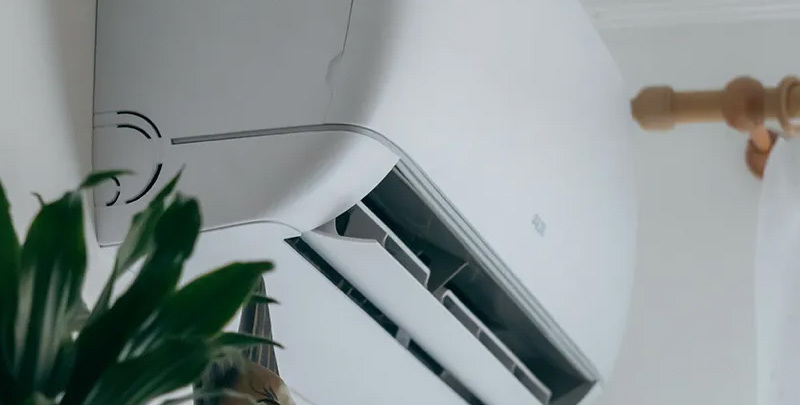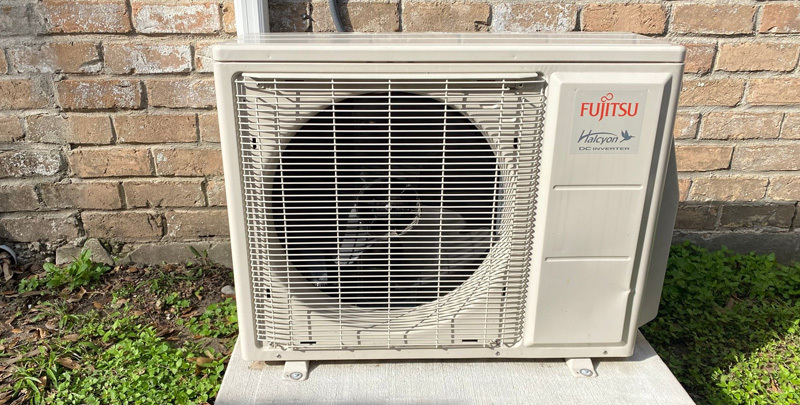In the thick of a sweltering summer or the fangs of a frigid winter, there’s one faithful friend in your home who stands guard – your inverter air conditioner.
This technological marvel, teeming with inverter technology, not only cools and heats with precision but is also a champ at keeping your power consumption in check, offering crucial energy savings.
But, just like their non-inverter counterparts, even these modern gizmos of cooling and heating aren’t immune to suffering a few hiccoughs. Recognising possible faults early on and knowing how to assess your inverter air conditioner for underlying issues can save you a lot of strife in the long run.
A Chat About Inverter Air Conditioners
To check for faults in inverter air conditioners, or repair them, it’s crucial to understand the sand and cement of how they work.
Unlike regular air conditioning units, inverter air conditioning systems harness a unique variable-speed compressor motor. This shifting speed setup lets the unit maintain a comfortable room temperature without frequently switching on and off.
In a split system, which is a popular type of inverter system, the motor adjusts the speed of the compressor in the outdoor unit to control the refrigerant flow rate inside the indoor unit.
As your room reaches the desired temperature, these innovative systems tonk down the compressor speed, thereby optimising power usage and achieving lower energy bills.
Why Go Waltz with Inverter Technology?
Inverter technology, embedded at the heart of inverter air conditioning systems, gives them an edge over non-inverter systems. For starters, inverter air conditioners pack in more efficiency, thanks to their variable-speed compressor.
They adjust to temperature changes in your room, all the while delivering consistent cooling or heating.
In comparison, the fixed-speed compressor motor in a non-inverter air conditioner works at full speed, cools or heats the room to the desired temperature, and then switches off.
This constant switching on and off of non-inverter air conditioners can pack a nifty punch on your electricity bills.
Inverter systems also promote more energy savings and lower operating costs. The variable speed of inverter air conditioning units makes them more energy efficient, cutting down on your power consumption and translating to savings that help you lower your electricity bills.

A Brief Look at Possible Faults
Maintaining the efficiency and longevity of a shiny piece of home comfort technology like an inverter AC is crucial.
This inverter air conditioner works at a continuous rate, dialling up or toning down to meet your desired temperature, ensuring less wear and tear on the inverter unit and promoting a longer lifespan.
Identifying and understanding any possible faulty behaviour in these air conditioners earlier contributes to their smoother performance in the long run. Let us explore some more common hiccoughs that could manifest in an inverter air conditioning system:
Noisy Operation
Air conditioners are designed to be the silent heroes of our homes. If your inverter air conditioning unit is cranking up the decibels, it’s likely an indication of trouble brewing under the bonnet.
Excessive noise could originate from loose or faulty parts, debris within the system, or even issues with the compressor or motor. In particular, a harsh or abrupt sound may point towards a malfunctioning compressor, while a rattling or buzzing noise could signal a motor issue.
Ineffective Cooling or Heating
The ability to deliver consistent and effective cooling or heating is what makes inverter air conditioners stand out from the crowd. If your inverter air conditioner isn’t quite hitting the sweet spot in temperature control, it’s a clear mark of something not working as it should.
Refrigerant leaks, for instance, are common culprits behind reduced cooling efficiency. A scarcity of this coolant substance could hamper your AC’s ability to cool the room. Equally, problems with the compressor or motor can also impede the air conditioner’s ability to cool or even provide adequate heating during colder months.
Frequent On/Off Cycles
Unlike non-inverter models, an inverter air conditioner operates on a continuous cycle, adjusting its speed to maintain the desired temperature without the need for excessive switching on and off. Therefore, if your inverter air conditioner starts behaving like a strobe light, frequently cycling between on and off states, it’s a sign something’s off.
Often, this kind of behaviour could be a faulty compressor motor that’s struggling to maintain steady operation.
Unresponsive Controls
Most modern inverter ACs have an array of controls, whether it’s the traditional remote, a smartphone app, or even voice commands. If your unit decides to have a mind of its own and doesn’t respond to these input commands, there could be underlying issues with its control panel or electrical circuits.
Sometimes, a simple switch-off and switch-on might rectify the problem, but if it continues, it might be time to invite a technician over.
Flickering Lights in Your Home
While it’s not unusual for lights to blink momentarily when your inverter system powers on, a continuous light show could be a red flag. This could mean that your residential wiring might be biting off more than it can chew with the power demands of your air conditioner.
In such a case, it’s well-advisable to consult with a licensed electrician to evaluate your home’s electrical setup and ensure it can comfortably support your inverter air conditioner.
Overheated Outdoor Unit
The outdoor unit of an inverter air conditioner system plays a critical role in cooling the refrigerant and releasing the gathered heat from your room to the outside environment. However, if you notice this unit turning into a hot plate, it could be a result of a failing compressor motor or even issues in the refrigerant flow within the system.
Either way, an incessantly heated outdoor unit signals a call for professional help.

Proper Maintenance: The Key to a Healthy Inverter Air Conditioner
Beyond being able to spot potential faults in your air conditioner, regular maintenance is instrumental in ensuring your inverter unit runs like a dream. From timely replacements of filters to ensuring a clean and clear outdoor unit, taking care of your inverter air conditioner can nip many possible issues in the bud.
While understanding the basics of how your inverter air conditioner works and recognising potential faults can be pretty handy, remember to leave the real fixing to the pros. Inverter systems involve complex electrical components and circuits, and any DIY attempts to fix issues can do more harm than good.
Always rely on a licensed technician to handle any faults or maintenance tasks with inverter air conditioners.
And, in the long run, the fantastic benefits of inverter technology, from energy efficiency to handy savings in your electricity bills, make inverter air conditioning a clear champion, despite the occasional hiccough! Save money, stay cool and contribute to the environment with inverter air conditioners.
Please note: This information is provided for advice purposes only. Regulations differ from state to state, so please consult your local authorities or an industry professional before proceeding with any work. See our Terms & Conditions here.

